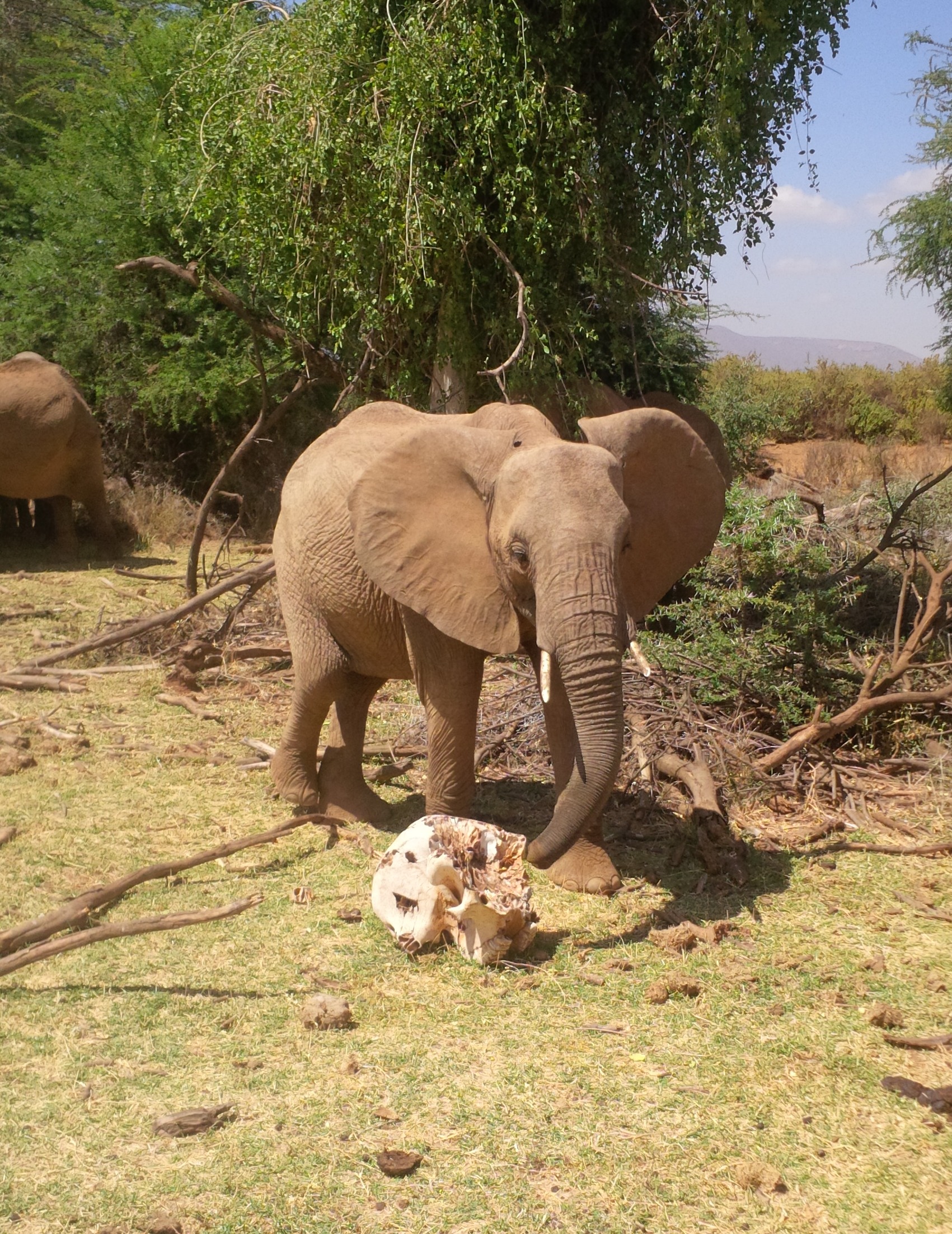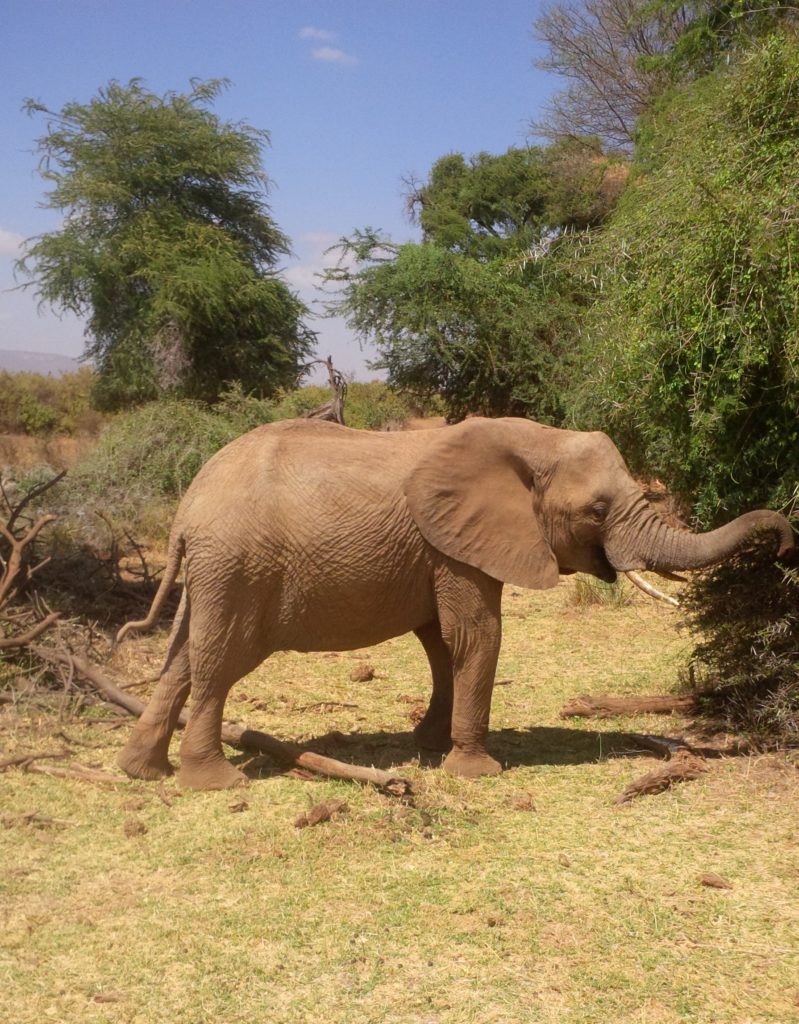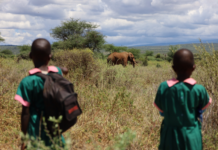By Okong’o Oduya
More than 90,000 elephants have lost lives to poachers in Tanzania in the period of 2007 -2015 , conservation experts reveal.
More than two million elephants were killed in Africa for the last seventy years. It is believed that in 1939 the population of elephants in Africa was totaling to three million and it has since reduced to 400, 000 across the continent.
These grim figures were revealed in Busia County recently when senior director of administration in the Ministry of Environment and Natural Resources , Ambassador Julius Kandie spoke on behalf of Minister Professor. Judy Wakhungu during a colorful ceremony to receive Executive Director at Elephant Neighbor Center Jim Nyamu, who walked for more than 3100 kilometers across east Africa region educating people on importance of protecting elephants.
Kandie noted that between 2007 and 2015 Africa as a continent lost more than 30 percent of elephants through pouching caused by illegal trading of ivory. He further said that within the period in East Africa ,Tanzania was badly hit by menace of pouching where more than ninety thousand elephants were killed, followed by Uganda at 14,500 while Kenya lost more than five thousand elephants.

According to him the decrease has never been witnessed in the region previous years. He noted that the ivory market in the world targets the region adding that the region is the largest source of ivory compared to other regions across the world.
However the director general wildlife Kenya Mr. Kitili Mbati said his department had put measures in place to increase the population of elephants in Kenya to regain the lost treasure of Africa. He said that despite the reports of poaching they have managed to reduce the cases by dealing severely with those caught in illegal business as well as protecting calves in beefing up the population.
Mbati noted that there is need for people across the world to realize that ivory business is illegal including products made out of ivory.“People need to be educated on the importance of taking care of these animals for the better of this country’s economic status as well as the pride of Africa,” He said.
The East African Legislative Assembly (EALA) in a recent session in Arusha, Tanzania, debated candidly and passed a critical report on poaching in the region. The Assembly in essence, urged East Africa Community ( EAC ) Partner States to reform wildlife laws and to put in place initiatives that promote upkeep of communities that neighbor the wildlife conservancy areas.

The Oversight report on poaching presented to the House by the Chair of the Agriculture, Tourism and Natural Resources Committee, Hon Christophe Bazivamo, further urged Partner States to develop or improve wildlife conservation strategies and protection measures through patrols, joint cross border operations, surveillance and information sharing.
With it, the Assembly said Partner States should and can provide part of the revenue collected from wildlife tourism to the communities living around the National Parks to promote conservation.
The report came from a workshop on poaching and fisheries held in Mwanza, Tanzania and in Nairobi, Kenya in August 2014. Its objective was to sensitize Parliamentarians on the escalating problem of poaching and illegal wildlife trafficking in EAC region and to solicit their views on strategies and measures that could be adopted in addressing the problem. The workshop further sought to consider existing international and regional policies, strategies and regulatory framework or instruments on wildlife management on the one side as well as the current and proposed national and regional initiatives toward strengthening wildlife conservation on the other hand.
The report was a follow –up on the Resolution moved in the House by Hon. Ogle Abubakar on “Escalating problem on Poaching and Illegal Wildlife trafficking in EAC” in August 2013 in Arusha.
Addressing the public while receiving Executive Director at Elephant Neighbor Center Jim Nyamu from Uganda crossing over to Kenya at Busia border post, Busia County Commissioner , Mongo Chimwaga noted that there is importance for Kenyans and the world at large to unite and fight illegal poaching of elephants across the world.
He applauded the work done by Jim adding that everybody with good intentions had to preserve elephants for future generations and should embrace the work Jim is doing towards saving the animals.
“I am urging all of us to unite and emulate this young man’s efforts towards protecting elephants. Walking for more than 3100 kilometers across east Africa region is not a joke. You need to prepare and be dedicated as well to accomplish the mission. Let us support him. When we unit we will tell the whole world that we are not going to destroy our heritage because of ivory,” Said Chimwaga.
On his side the County Executive Committee member Ministry of Environment, Water and Natural Resources Busia County Dr. Gregory Odeke noted that, as a border County the government through his ministry t will put measures in place to stop any smuggling in or out any product made of ivory across the border.
He said they will partner with the national government to make sure that security measures are put in place to screen any ivory product crossing over to Kenya so that people responsible be dealt with in accordance to the law.
During his last lap of his journey after walking from Tanzania, Uganda and now Kenya with the main theme of ‘Ivory belongs to elephant’ , Jim Nyamu noted that his main aim of undertaking the tough task was to sensitize east African community on the importance of protecting the elephants within the region from illegal poaching.
He says that it is the community that produces these illegal poachers and it is now the role of this community to be on fore front to protect wildlife.
He appealed to all stakeholders to unite and educate public the relevance of taking care of the elephants by refusing to buy any product made of ivory as one of the measures to kill the market.
“My appeal to the community in East Africa is let us join together in fighting this problem. It may seem to be far from us yet it affects us in many ways. When we kill our elephants we kill our economy because tourists visit this region to see these treasures we are killing,” He concluded.















